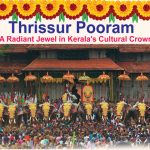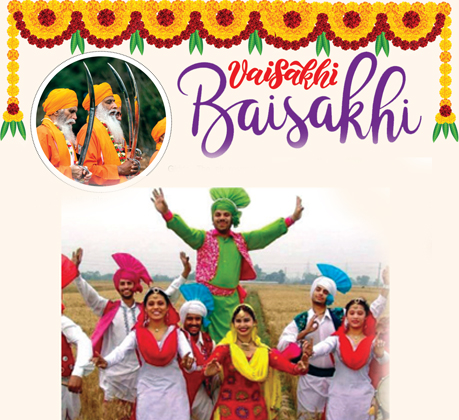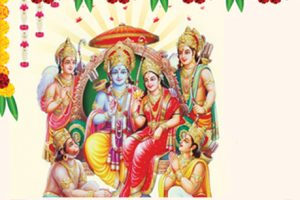Vaisakhi, also known as Baisakhi, stands as a vibrant celebration deeply rooted in Indian culture, especially revered in the northern regions. It holds rich historical and religious significance, weaving together a tapestry of traditions
that resonate across communities.
Historically, Vaisakhi marks the formation of the Khalsa Panth by Guru Gobind Singh Ji in 1699, a pivotal moment in Sikh history symbolizing devotion and sacrifice. It also heralds the onset of the harvest season in Punjab, a time of
abundance and gratitude for farmers.
Celebrations of Vaisakhi paint the streets with colorful processions, echoing with the beats of traditional folk dances like Bhangra and Gidda. The air resonates with Sikh hymns as communities come together to feast on Punjabi delicacies
and exchange warm greetings. The Golden Temple in Amritsar shines brightest during Vaisakhi, drawing devotees seeking blessings and spiritual renewal. The sacred sarovar offers pilgrims a chance for purification and reflection.
Beyond its religious and cultural dimensions, Vaisakhi embodies principles of unity and inclusivity, transcending barriers of caste and religion. Its message of equality and social justice remains relevant in contemporary times, inspiring
individuals worldwide. Vaisakhi celebrations extend globally, uniting Sikh communities in a spirit of solidarity and belonging. From New Delhi to London and Vancouver, the festival serves as a reminder of shared heritage and values.
In a world marked by change and uncertainty, Vaisakhi’s timeless message of love and selfless service resonates deeply. It urges individuals to embrace compassion and kinship, fostering a sense of hope and renewal for all humankind. As
Vaisakhi dawns each year, it reminds us to uphold the ideals of community, empathy, and unity, lighting the path towards a brighter future.

















Add Comment